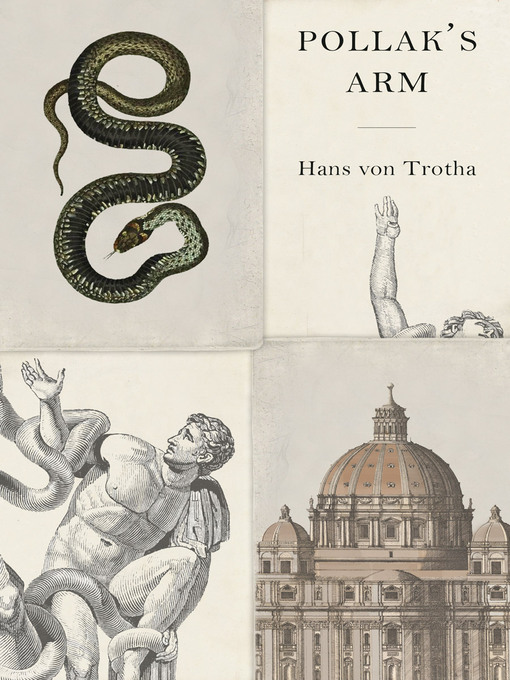October 16, 1943, inside the Vatican as darkness descends upon Rome. Having been alerted to the Nazi plan to round up the city's Jewish population the next day, Monsignor F. dispatches an envoy to a nearby palazzo to bring Ludwig Pollak and his family to safety within the papal premises. But Pollak shows himself in no hurry to leave his home and accept the eleventh-hour offer of refuge. Pollak's visitor is obliged to take a seat and listen as he recounts his life story: how he studied archaeology in Prague, his passion for Italy and Goethe, how he became a renowned antiquities dealer and advisor to great collectors like J. P. Morgan and the Austro-Hungarian emperor after his own Jewishness barred him from an academic career, and finally his spectacular discovery of the missing arm from the majestic ancient sculpture of Laocoön and his sons. Torn between hearing Pollak's spellbinding tale and the urgent mission to save the archaeologist from certain annihilation, the Vatican's anxious messenger presses him to make haste and depart. This stunning novel illuminates the chasm between civilization and barbarism by spotlighting a now little-known figure devoted to knowledge and the power of artistic creation.
- New eBook additions
- Available now
- Most popular
- Popular "Always Available" eBooks - No Wait!
- Read It Before You See It
- Homeschooling Resources
- Colorado Authors Spotlight
- Business Essentials
- Spanish-Language Books
- Color Our World
- See all ebooks collections
- New audiobook additions
- Available now
- Always Available FICTION Audiobooks
- Always Available NONFICTION Audiobooks
- Audiobooks Under 3 Hours Long
- Most Popular Audio Between 3 and 5 Hours Long
- Most Popular Audio Between 5 and 10 Hours Long
- Radio Dramatizations/Adaptations
- Audiobooks for the Whole Family
- Great Narrators
- Spanish-Language Books
- Color Our World
- See all audiobooks collections
- 100 Most Popular Magazines!
- Art & Architecture
- Business & Finance
- Celebrity
- Cooking & Food
- Fashion
- Home & Garden
- Kids & Teens
- News & Politics
- Science
- Sports
- Travel & Outdoor
- See all magazines collections


